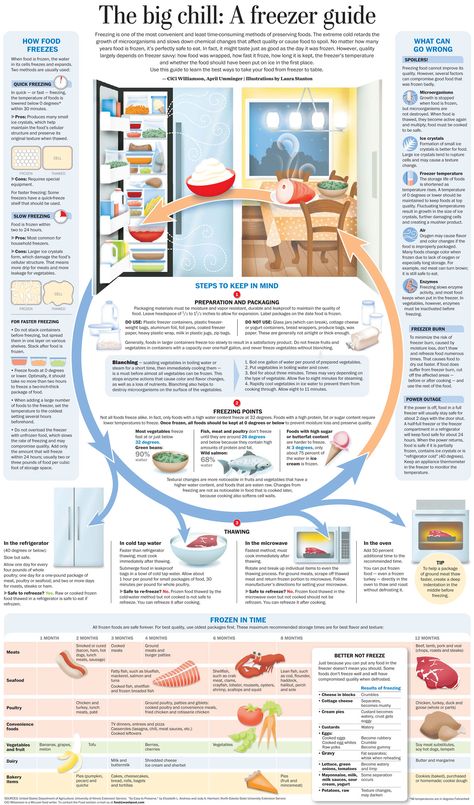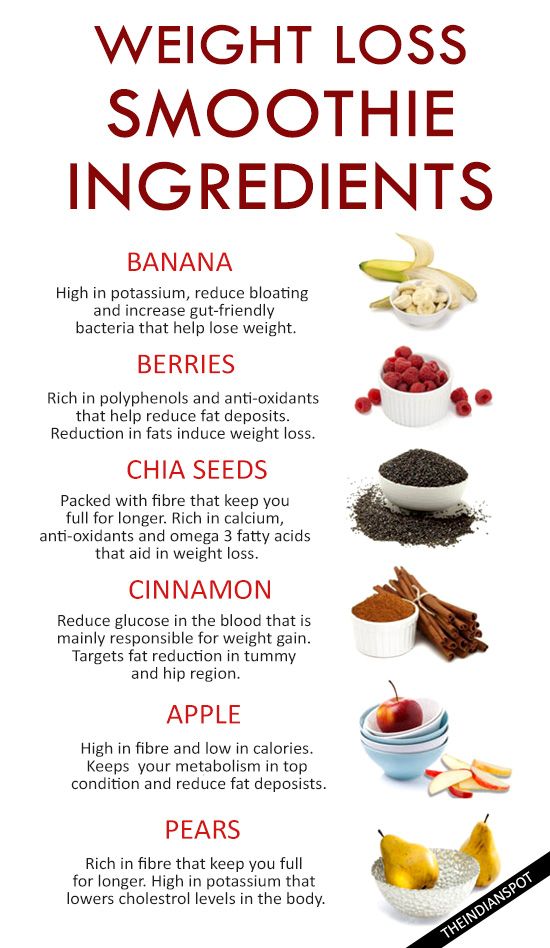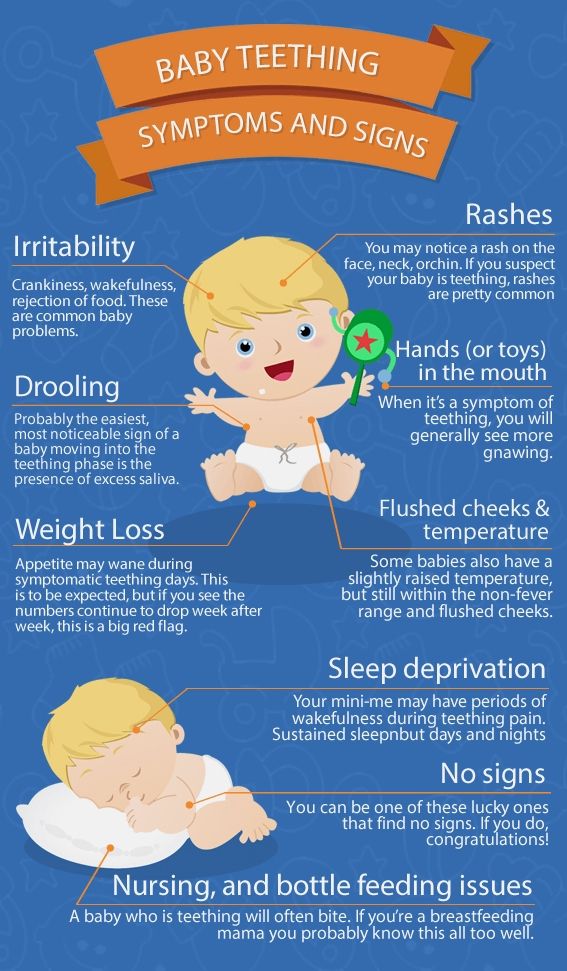6 month old baby still feeding through the night
How to Gently End Night Feedings
The most common problem behavioral sleep disorders is that most children who experience problems falling asleep have never learned to fall asleep without a breast or bottle in their mouths. Their need for this sleep crutch compounds as they get older and no longer physically need a bottle or breast before going to sleep. As they become toddlers, they are not equipped with the necessary tools and habits to put themselves to sleep. The good news is that it’s never too late to address the problem of baby feeding at night and remedy it. Night weaning is appropriate for healthy children older than six months. Learn to:
- Address your child’s hunger clock
- Gently reduce night feeds and “dream feed”
- Gradually night wean
- Introduce a cup
- Gently eliminate toddler feedings
Address Your Child’s Hunger Clock
Let’s begin by addressing your child’s hunger clock, making sure she is taking in most of her calories during the day, not waiting to feast at night. Keep a log of her daily diet and check with your doctor if you are unsure of what her intake should be. Make sure your child is not overtired when putting her to bed for either a nap or at bedtime. Proper rest will make night weaning much easier for her and you. As with breaking any sleep crutch, the key to success is consistency.
Reduce the Number of Night Feeds Before Night Weaning
If you or your pediatrician think it’s too early for total night weaning, or if you want to cut back on your nighttime feedings but aren’t ready to eliminate them all together, restrict feeding to just once per night. Feed her quickly and avoid any other interaction that will encourage her to stay up, play, or cling to you.
Be consistent! Choose an approach and stick to it. Only feed her once at night and not again until after 6:00 a.m. If she wakes up at other times wanting food, find other ways to calm her. Sit by her crib and offer physical and verbal reassurance until she is asleep. Pick her up to calm her if need be, but not until she falls asleep.
Pick her up to calm her if need be, but not until she falls asleep.
Is your baby waking up too early?
Read: Early Rising in Babies and Toddlers – 10 Tips to Resolve Early Wake-Ups
Try an Extra Night Feed or “Dream Feed”
You can try to dream feed her. Dream feeding means waking her, or half-waking her, for a final feeding before your own bedtime. Usually that falls around 11:00 p.m. Alternatively, you can wait until she wakes up, as long as it’s at least FOUR hours after her last feeding, which usually means around 11 p.m. or 12:00 midnight. Then don’t feed her again until she wakes up in the morning, 6:00 a.m. at the earliest. This is a step along the way to night weaning for babies who still can’t go the full night without some calories.
How to Night Wean Gradually
When night weaning children from six to twelve months, I usually suggest a gentle and gradual elimination of nighttime feedings.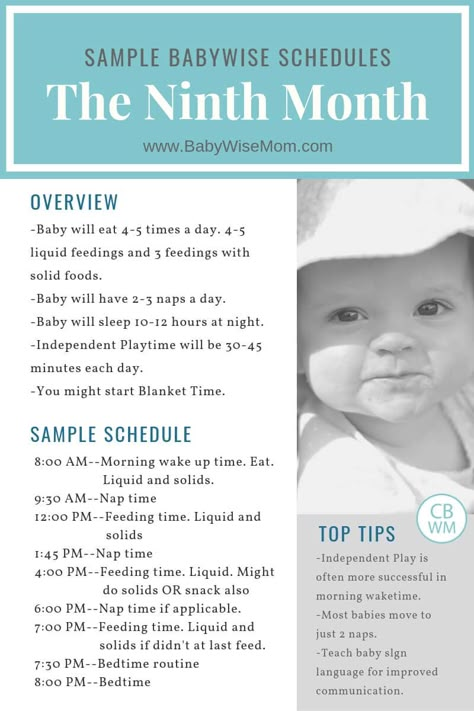 Overnight, try cutting down on nursing time. If she usually feeds for twenty minutes during the night, give her fifteen. Keep cutting back every few days until she’s ready to give it up. Make sure you unlatch her when she finishes eating heartily — don’t let her gently suckle and doze. Same with the bottle — let her eat, but don’t let her play with it.
Overnight, try cutting down on nursing time. If she usually feeds for twenty minutes during the night, give her fifteen. Keep cutting back every few days until she’s ready to give it up. Make sure you unlatch her when she finishes eating heartily — don’t let her gently suckle and doze. Same with the bottle — let her eat, but don’t let her play with it.
With a nighttime bottle, you can also try switching to a smaller bottle, put less formula in the bottle, or gradually dilute the formula so that when it gets very watery, she might decide it’s not worth getting up for. Then she’s night weaning herself!
When the nursing is cut back to five minutes, or the bottle to three ounces, it’s time to stop. Anything smaller is just a tease. Get her back to bed while she’s drowsy, but awake.
Did you know you should put your baby to bed alert, or “drowsy but awake”?
Read: Drowsy But Awake — The Cornerstone of Successful Sleep Training
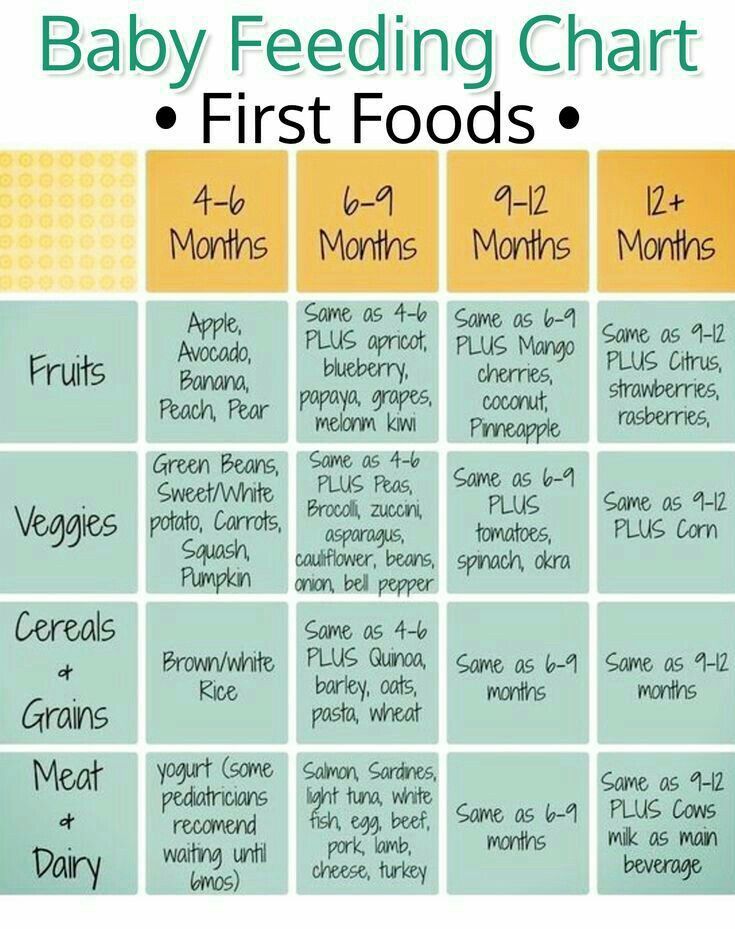
Introduce a Cup
Try to introduce a cup before her first birthday to help with night weaning. As babies get older, they become emotionally attached to the bottle or breast. It basically becomes a “lovey” and can contribute to the ingrained habit of waking up at night in search of it. Nurse or bottle feed at set times, and use the cup at set times. Most moms and babies like nursing or bottle feeding during the morning and night, and use the cup during the day, especially with solids at mealtime. Don’t let her fall asleep on the breast or bottle, though! And encourage the attachment to a lovey.
Does your child have a lovey?
Read: The Lovey — Your Child’s First Best Friend
Eliminating Toddler Night Feedings
Toddlers need to begin eliminating the nighttime noshing by changing from nursing or bottle feeding before bed to drinking from a cup. The goal is to have your child drink a cup of water instead of milk before bed — or nothing at all.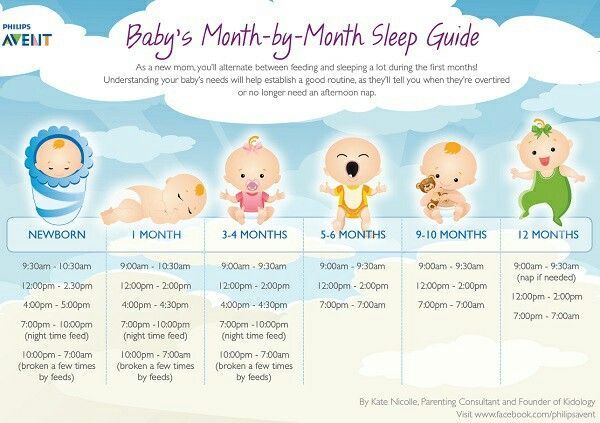 Milk encourages the child to want it again every time they stir or wake during the night. A cup of water — a sippy cup or sports bottle — by the bedside will encourage your child to wean herself from milk. Not to mention, your child’s dentist will approve! But be firm in allowing only one cup that has to last all night. You will not keep coming back to give her more.
Milk encourages the child to want it again every time they stir or wake during the night. A cup of water — a sippy cup or sports bottle — by the bedside will encourage your child to wean herself from milk. Not to mention, your child’s dentist will approve! But be firm in allowing only one cup that has to last all night. You will not keep coming back to give her more.
With infants, a gradual night weaning is best, but after her first birthday, it’s usually best just to stop cold. When she wakes up at night wanting to nurse or take a bottle, sit by her side and find other ways to calm her. Pat her mattress a bit and whisper “sh-sh-sh,” and tell her it’s nighttime. Don’t cave in and feed her or the inconsistency, aka “intermittent reinforcement”, is going to make the change more prolonged and difficult for her.
If you can’t bear stopping cold, then try a dream feed for a few nights, but no more than a week.
 Try introducing a soft toy instead.
Try introducing a soft toy instead.Consistency is Key in Night Weaning
As with breaking any sleep crutch, consistency is the key to success with night weaning. Once you begin a new habit, do not go back! It will confuse the child and take twice as long to break this sometimes emotional need to nosh at nighttime. Focus on bedtime – drowsy but awake. If your child is put into her crib or bed asleep, then these nighttime techniques will NOT work. Gently encourage and offer reassurance. Present lovies or a new stuffed animal friend to help with the change. Often, the stuffed animals can “hold” the new big girl sippy cup on a nightstand during the night in case your child needs it. Your loving words, gentle touch, and soft voice will go a long way in making this a quick change for everyone!
Good luck!
Why Night Weaning Isn't Working
Is your ongoing project to night-wean your baby a huge and utter failure? Does the idea of sleeping, without interruption, seem as unattainable as travel by jetpack? Starting to feel a little stabby?
Don’t feel bad, you’re in good company. Getting your baby to consume all their calories during civilized hours can be a tricky project beset by illness, teething, and a seemingly endless stream of growth spurts. But it can be done. And it helps to start by figuring out why things aren’t quite working out as planned.
Getting your baby to consume all their calories during civilized hours can be a tricky project beset by illness, teething, and a seemingly endless stream of growth spurts. But it can be done. And it helps to start by figuring out why things aren’t quite working out as planned.
Any night-weaning project needs to start with putting baby down awake. If you are still nursing/feeding/using the pacifier to get baby to sleep (and let’s face it, most of us are) you need to START with putting baby down awake AT bedtime. You cannot skip this step. No cheating. Put baby down awake.
But what if you ARE putting baby down awake and you’re still not having any success at night? Below I’ve listed the 8 most common reasons night weaning isn’t working in order from the MOST likely (#1) to the LEAST likely (#8).
-
They’re too young.
Some babies aren’t ready to fast for 12 hours until they are 6-8 months old. If your 10 month old is still eating all night long, you’ve probably got other issues.
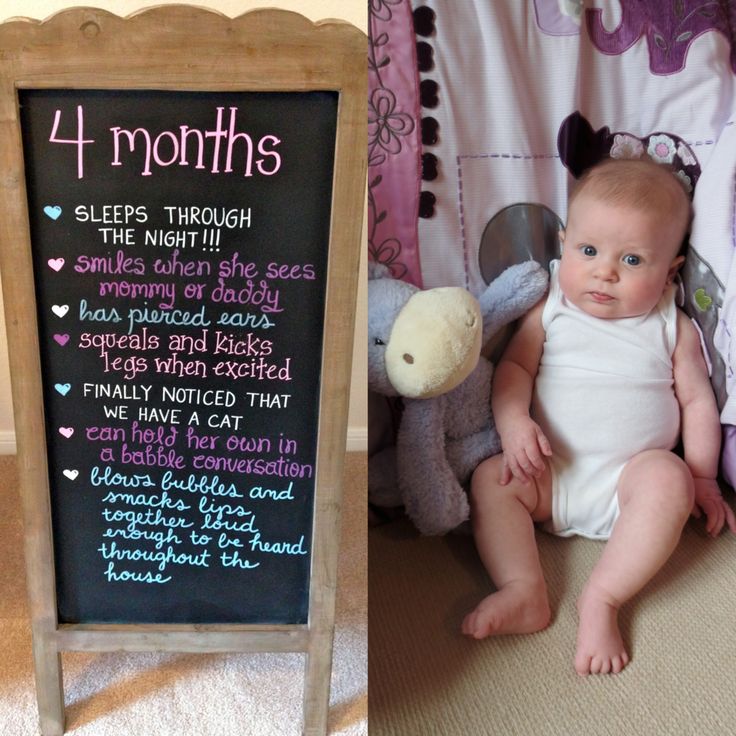 But when your baby is 4, 5, or even 6 months old, they may be simply not ready to go that long without a meal. So if your 6 month old still resolutely eats 1-2X a night, it may simply be a “wait it out” type of issue.
But when your baby is 4, 5, or even 6 months old, they may be simply not ready to go that long without a meal. So if your 6 month old still resolutely eats 1-2X a night, it may simply be a “wait it out” type of issue. -
Eat = Sleep
Even if you are putting baby down awake, she could still have a STRONG eat=sleep association that will stymie your efforts to night wean. Night weaning STARTS at bedtime. If you’re nursing/feeding just PRIOR to bedtime, your baby can maintain a food=sleep association and insist on being fed throughout the night. You’re going to have to put your night-weaning project on hold and focus on separating the eat=sleep association AT bedtime. Try mixing up your bedtime routine so that there is minimally a 20 minute gap between food and sleep.
-
Distracted Eater
As babies get older and more interested in the world they can’t be bothered to stop staring at the Christmas lights long enough to eat.
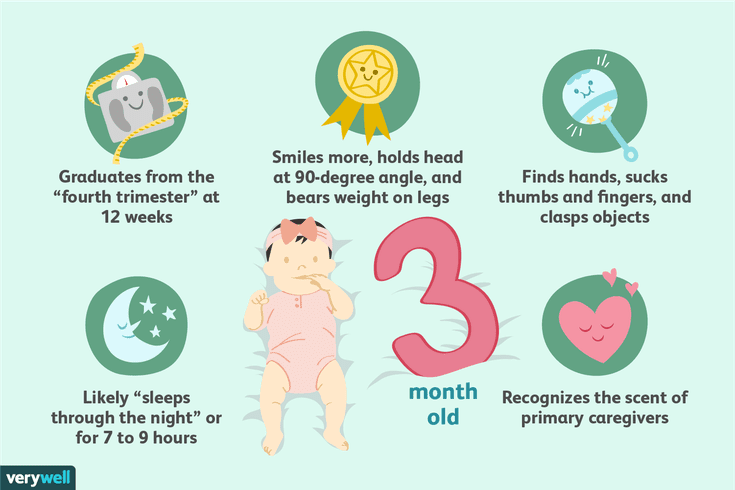 So despite your best efforts baby may eat just enough to get by during the day, choosing instead to tank up at night when it’s dark and boring out. Or….
So despite your best efforts baby may eat just enough to get by during the day, choosing instead to tank up at night when it’s dark and boring out. Or…. -
Preferred Source
Many working Moms find that their baby barely consumes 10oz a day at daycare, far less than they are pumping, but then is ravenous all night long. Often your baby previously had one small snack at night but now is clamoring for huge nursing sessions throughout the night. Why? Because they would much prefer to get their milk fresh from the breasturant and, given that the breasturant is only open at night, they wait to eat at night. The solution to distracted eaters and “only the boob will do” babies really deserves it’s own post. But clearly the answer is to get more calories in during the day and to make food less available/appealing at night. Because if baby is fasting during the day for whatever reason, night-weaning will continue to be an uphill slog.
-
Too Much Solid Food
Feeding babies solids is super fun and especially for nursing Moms, can be a well-earned reprieved from being the sole source for on-demand feedings.
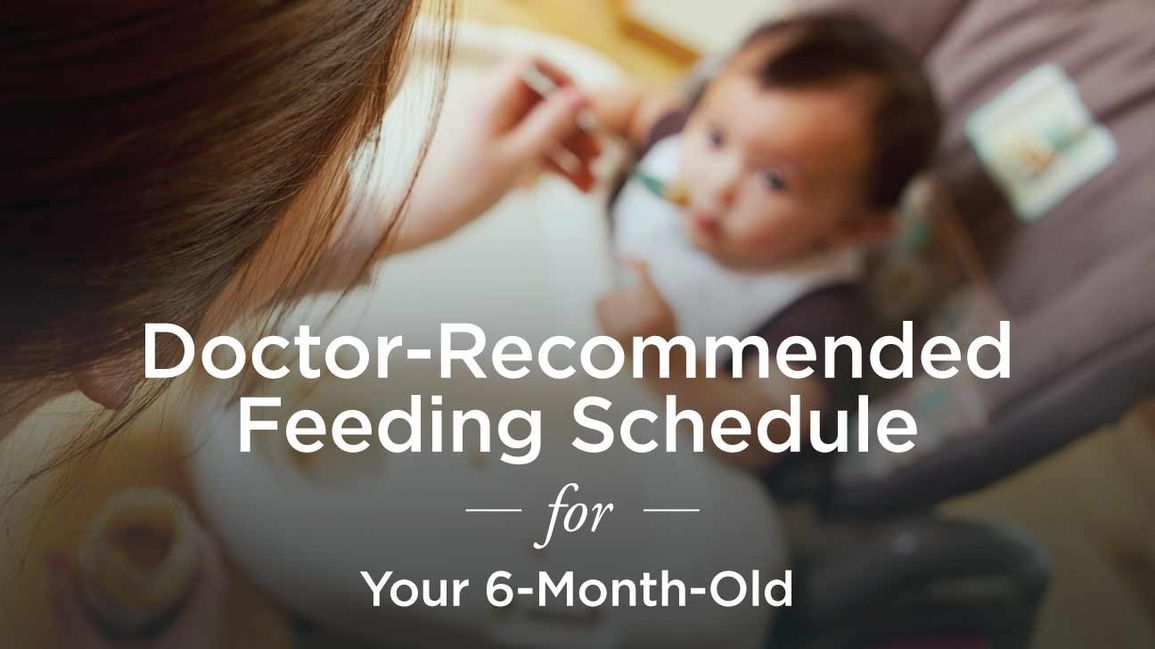 But baby food is calorically light. 4 oz of breastmilk = 80 calories. 4 oz of gerber carrots = 15 calories. It’s like high-fiber diet food. So don’t let your well-intentioned enthusiasm to offer solid meals interfere with liquid calories during the day.
But baby food is calorically light. 4 oz of breastmilk = 80 calories. 4 oz of gerber carrots = 15 calories. It’s like high-fiber diet food. So don’t let your well-intentioned enthusiasm to offer solid meals interfere with liquid calories during the day. -
Nursing Issues
PLEASE DON’T PANIC AS THIS IS VERY RARELY THE ISSUE. No…I can see you are panicking. Please stop. Really. In very RARE cases there might be a small nursing issue that is tripping you up. Sometimes baby is thriving, growing, and producing wet diapers but supply is just a tiny bit low so baby is constantly hungry and eats hourly all day long. Or maybe oversupply or fast letdown means that baby is filling up on watery foremilk but not getting enough of the fatty hindmilk, and thus need to eat constantly because each meal is really more of a snack. I’m not a nursing expert and there are probably 5 other small nursing challenges that might lead to an older baby who needs to eat constantly.
 But I DO know that they’re a) rare and b) fixable. If you suspect this is the root problem it’s time to find a reputable, local IBCLC to work with.
But I DO know that they’re a) rare and b) fixable. If you suspect this is the root problem it’s time to find a reputable, local IBCLC to work with. -
Self Sabotage
Maybe you’re a working mom who feels guilty about not having enough cuddle time during the day. Maybe you still see your hearty 25 lb baby as the 5 lb preemie he was 10 months ago. For many reasons sometimes parents aren’t quite ready to night wean and that tiny voice inside tells them to run into baby’s room every time they here a coo in the night. And that’s totally OK. Take some quiet time and ask yourself, “Am I really ready for this? Do I feel some inner conflict about it?” If you aren’t ready, take weaning off the table until you are. It’s OK. You’ll get there.
Anybody struggling with night weaning? Any success stories from the trenches? Anything else I should add to my list?
Displaced feeding schedule: why does your baby eat all night and how to change it?
03/12/2017
153811
81
Feeding and sleep
3-6 months --9 months-18 months
Article
Natalya Trofimova
Natalya Trofimova 9000 Mom of two daughters
Does your baby eat little or rarely during the day, but hangs on her chest for a long time at night or often asks for a bottle? This is called a "shifted feeding schedule.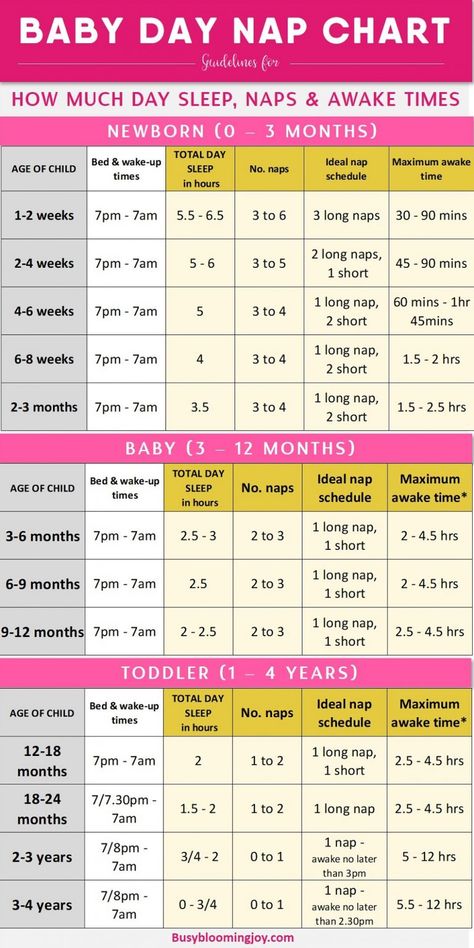 " With this organization of nutrition, the child receives the bulk of the calories at night. During the day, feedings are either short or rare, or the baby refuses the breast or bottle altogether. After six months, there may be difficulties with the introduction of complementary foods, especially with unformed nutritional interest.
" With this organization of nutrition, the child receives the bulk of the calories at night. During the day, feedings are either short or rare, or the baby refuses the breast or bottle altogether. After six months, there may be difficulties with the introduction of complementary foods, especially with unformed nutritional interest.
Child crisis calendar
Why is this happening?
- During periods of crisis in a child's development (a developmental leap, teething, an acute illness, any strong emotional experiences), a temporary and sharp increase in the number of feedings is normal, it just needs to be waited out.
- Babies in their first months of life can “mix day and night” and, accordingly, stay awake and eat mostly at night.
- Older children become interested in everything and are easily distracted during the daytime feedings, butting for a short time, because they have too many important things to do during the day.
- With the introduction of complementary foods, mothers sometimes begin to replace daytime feedings with breast milk or formula with low-calorie fruit and vegetable purees, and the baby has to “get” calories at night.
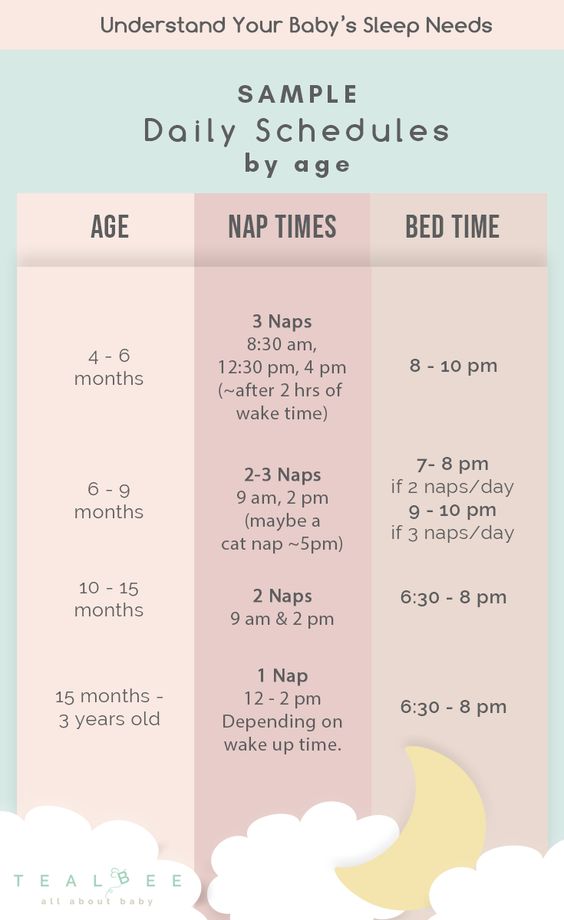
- Mixed-fed, when breast milk and formula are clearly separated by time of day. When breastfeeding only during the day, the baby may refuse the breast if he prefers a bottle that is given only at night. And vice versa, when feeding during the day with a mixture, and at night with a breast, if the baby prefers the breast.
- Breastfeeding mother works outside the home or is separated most of the day from the baby (even with the possibility of pumping). Breastfeeding at night helps the baby make up contact with the mother and stimulate lactation. This is a good option if you manage to organize a dream so that everyone gets enough sleep.
Answer a few questions to understand if your feeding schedule is shifted:
- How many times does the child eat during the day and how, how many times does he wake up at night?
- Does he eat for a long time every night when he wakes up, are sips audible, or is it mostly short attachments with superficial sucking for a couple of minutes?
- Are the daily feeds long, does the baby let go of the breast when it is full, or is it often torn off and distracted?
- Can a baby fall asleep without breastfeeding or a bottle (both day and night) or is this the only way to fall asleep?
Frequent nightly "snacking" does not always indicate that the feeding schedule is shifted.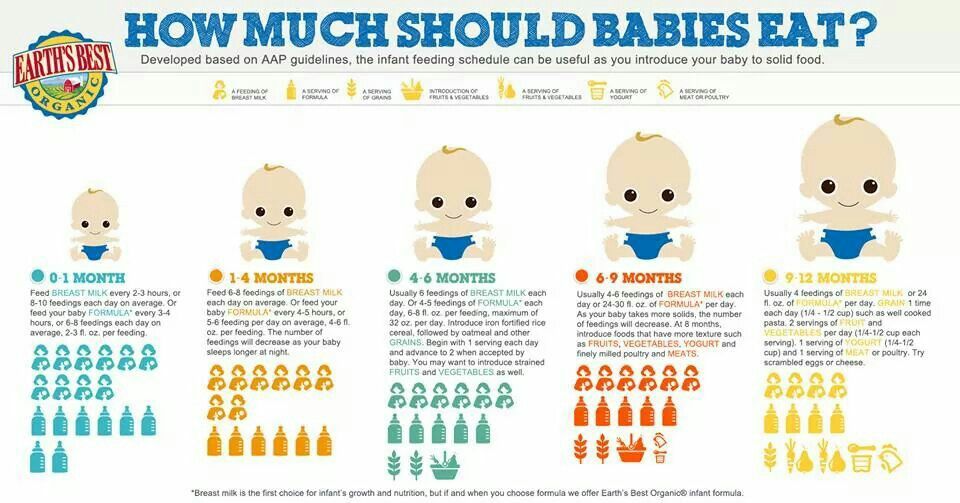 If feeding is a way to relax and fall asleep, then when awakened at night between sleep cycles, the breast or bottle will again be required to fall asleep. This is an association with sleep, the way and habit of falling asleep.
If feeding is a way to relax and fall asleep, then when awakened at night between sleep cycles, the breast or bottle will again be required to fall asleep. This is an association with sleep, the way and habit of falling asleep.
What such feedings usually look like:
- The baby wakes up every 1–1.5 hours at night and asks for food, and during the day he usually eats after 3 hours, which means that he is unlikely to feel hungry.
- The child eats very little at night: he kissed his chest for a minute or a bottle, ate 10-20 ml and fell asleep - in this case, he does not have a goal to eat.
- If there is an association for sleep, but the daily appetite does not suffer, mother and baby get enough sleep, there is nothing to worry about. In order for the number of nightly awakenings and feedings to allow sufficient sleep, even if there is an association for sleep, the child must be well suited to sleep and wakefulness.
Is it possible to change the habit of eating at night and when should I wait?
As much as one would like to reduce the number of night feedings, there are situations when they are necessary.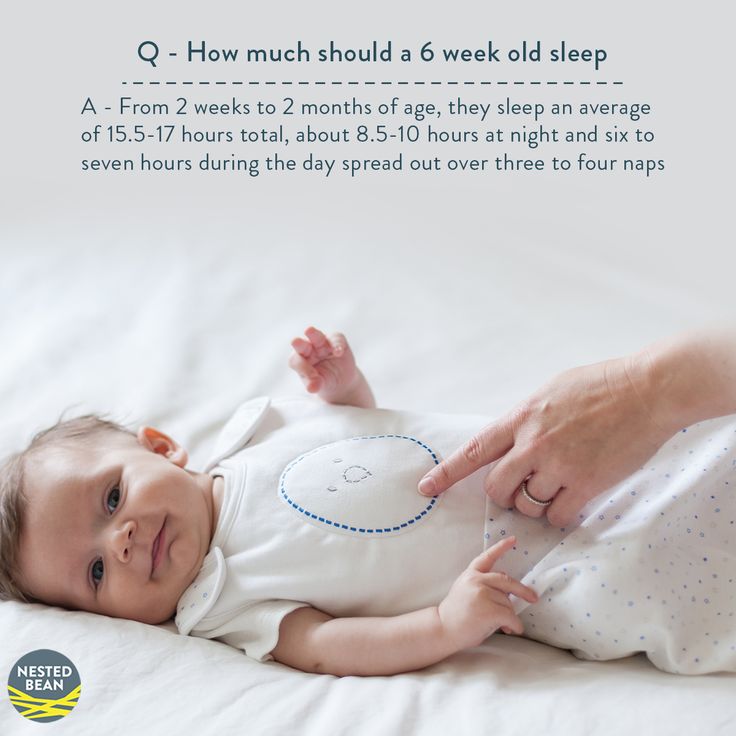 For example, a baby in the first months of life does not gain weight well, there are problems with lactation (little milk, false breastfeeding), adaptation to a therapeutic mixture with a specific taste and refusal to wake up, the baby feels unwell (sick, teeth are being cut), a child is experiencing a developmental leap, stress, a long separation from her mother.
For example, a baby in the first months of life does not gain weight well, there are problems with lactation (little milk, false breastfeeding), adaptation to a therapeutic mixture with a specific taste and refusal to wake up, the baby feels unwell (sick, teeth are being cut), a child is experiencing a developmental leap, stress, a long separation from her mother.
The assistance will depend on the age and the reason for the predominance of night eating. In the first months of life, with the "confusion of day and night," it is important to show the baby when it is day and when it is night. For daytime sleep, you do not need to create a strong blackout, and at night you need to ensure maximum darkness in the room. Limit overly long naps. All activities, walks, communication - during the day, no games at night.
If the baby is distracted during feedings and “forgets” to eat, you need to create the most calm atmosphere during feedings: turn off the TV, do not use the phone, retire to a darkened quiet room, turn on white noise. You can put a bright scarf around your neck, slingobuses, any baby rattle on a ribbon. Try a different position with less visibility, such as kneeling facing you or in a sling.
You can put a bright scarf around your neck, slingobuses, any baby rattle on a ribbon. Try a different position with less visibility, such as kneeling facing you or in a sling.
With the introduction of complementary foods, do not rush to replace breastfeeding or mashed formula. The first vegetable or fruit purees are not comparable in calories to breast milk and formula. Occupying volume in the stomach, they reduce milk intake during the day. Complementary foods can fully replace feeding only after 8 months, when it will make up about 20–30% of nutrition and the baby will eat cereals, meat, and vegetables.
On mixed feeding, it is desirable to supplement the baby with the mixture in the required amount after each application to the breast, or feed the mixture by the hour (at regular intervals), and breastfeed on demand.
A breastfeeding working mother has the hardest time reducing the number of night feeds. To do this, you need to feed the baby often enough during the day, a maximum of 3–3. 5 hours. In the evening, you can reduce the intervals and in the last 3 hours before laying down, put the baby to the breast or give expressed milk every hour, after falling asleep at night around 23-24 hours, offer “sleep feeding”, feed in the morning upon waking up and before leaving the house.
5 hours. In the evening, you can reduce the intervals and in the last 3 hours before laying down, put the baby to the breast or give expressed milk every hour, after falling asleep at night around 23-24 hours, offer “sleep feeding”, feed in the morning upon waking up and before leaving the house.
Frequent night feedings are necessary for a child at certain periods of his life and development. The main difficulty is to understand when the crisis period has passed, to begin to distinguish between the child's need for food and his anxiety for other reasons. A child who wakes up at night is not always hungry, and acting always in the same way, you can fix the habit.
If you can't figure out your feeding schedule on your own, book an individual consultation. The BabySleep consultant team also includes consultants for breastfeeding and complementary foods. We will help you establish a comfortable feeding schedule for you and your baby and return your family to a restful sleep.
Article updated: 06/26/2021 nextArrow: '', responsive: [{breakpoint: 1199, settings: {arrows: !1, infinite: !1, slidesToShow: 1}}] }) })
Why a child eats at night - find out on the website
“Eating after 18 is harmful”, “At night you need to sleep, not eat” ... We are used to the fact that snacking at night is a sign of an eating disorder. However, sometimes even adults find it difficult to endure a break between meals, especially if it lasts more than 8-9 hours.
Newborn babies grow as fast as ever at any other age: in the first year, their weight increases by 3 times, and their height is about half. This is only possible if they receive nutrients regularly. That is why it is completely normal that the child wakes up at night and asks for food. This is not a whim and an unusual feeling of discomfort, this is real hunger!
Why does eating at night cause such anxiety in parents? The fact is that sometimes night feedings stretch out all night, distracting the child and the parents themselves from another important activity - sleep.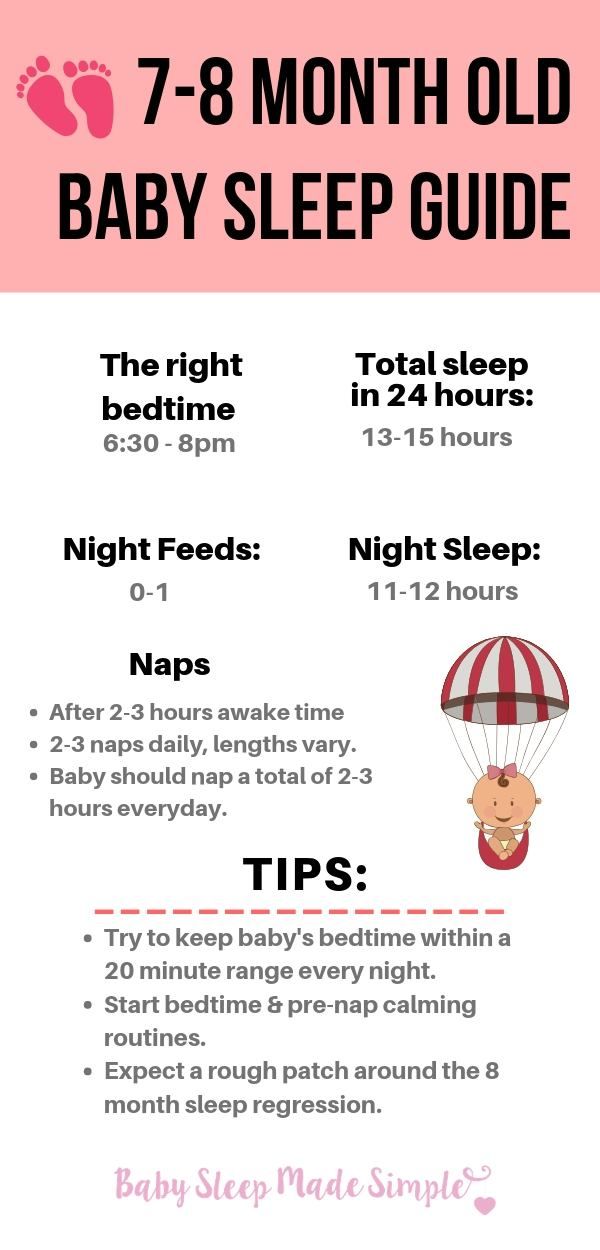 Sleep deprivation, like lack of nutrition, leads to serious consequences that should not be ignored.
Sleep deprivation, like lack of nutrition, leads to serious consequences that should not be ignored.
Until what age does a child eat at night?
Despite the simplicity of this issue, the largest pediatricians in the world still cannot agree. Renowned doctor Richard Feber claims that babies older than 3 months no longer need night feedings. The luminary of pediatrics Evgeny Komarovsky pushes this bar up to 6 months, and the famous William Sears believes that feeding at night is necessary for at least one year.
Most practitioners use the following recommendations, which may vary slightly depending on the needs of the child:
- Up to 3 months - feed every 3 hours.
- 3-4 months - 2-3 feedings per night.
- 5-6 months - 1-2 feedings per night.
- 7-9 months - 1 feeding per night, in case of illness or weakness - 2 feedings.
- 10-12 months - feed only when necessary (stress, illness).
If a child is a year old and still eats at night, this behavior can lead to disruption of the regimen and the formation of a chronic lack of sleep.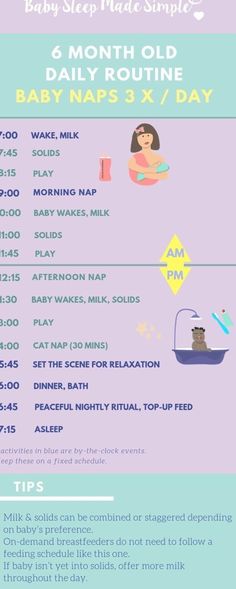 In addition, night feedings have a negative effect on milk teeth, causing early caries.
In addition, night feedings have a negative effect on milk teeth, causing early caries.
The child often eats at night - what to do? 8 steps to restful sleep.
What if your child does not comply with the recommendations and continues to eat frequently at night? We offer you an 8-step strategy that will lead you to stop feeding at night and sleep soundly throughout the night.
- Make sure it's hunger. When the baby wakes up at night, check if he is really hungry or if the anxiety is caused by other factors (too hot or cold, wet diapers, the usual “failure” to fall asleep between sleep phases).
- Don't hurry! Let the process of not eating at night be gradual. Every night, increase the interval between feedings, skipping one every 2-3 days until the desired amount. Some children will take longer to do this than others.
- Please select the correct time. Illness, a move, or another change of scenery is not the right time to refuse food at night.

- Feed enough throughout the day. The abundance of high-quality and tasty food by age, with a high content of protein, vitamins and trace elements will be the key to feeling full throughout the night.
- Add a second dinner 1 hour before bedtime. It should be a nutritious but easily digestible meal, such as sour milk products. Avoid eating sweets and desserts at night, as they provoke excessive excitement.
- Ask for help with bedding. Let another parent, grandmother or even an older child put the baby to bed instead of you. This item is especially important when breastfeeding.
- Be patient. It will take you at least a week to notice the result and, of course, during this period your baby will cry.
- Reassure the baby. Show him that although you do not want to feed him now, your bond is still strong, that you love him and will not give offense. To help you, check out our selection of short lullabies that you can sing right through the night.


